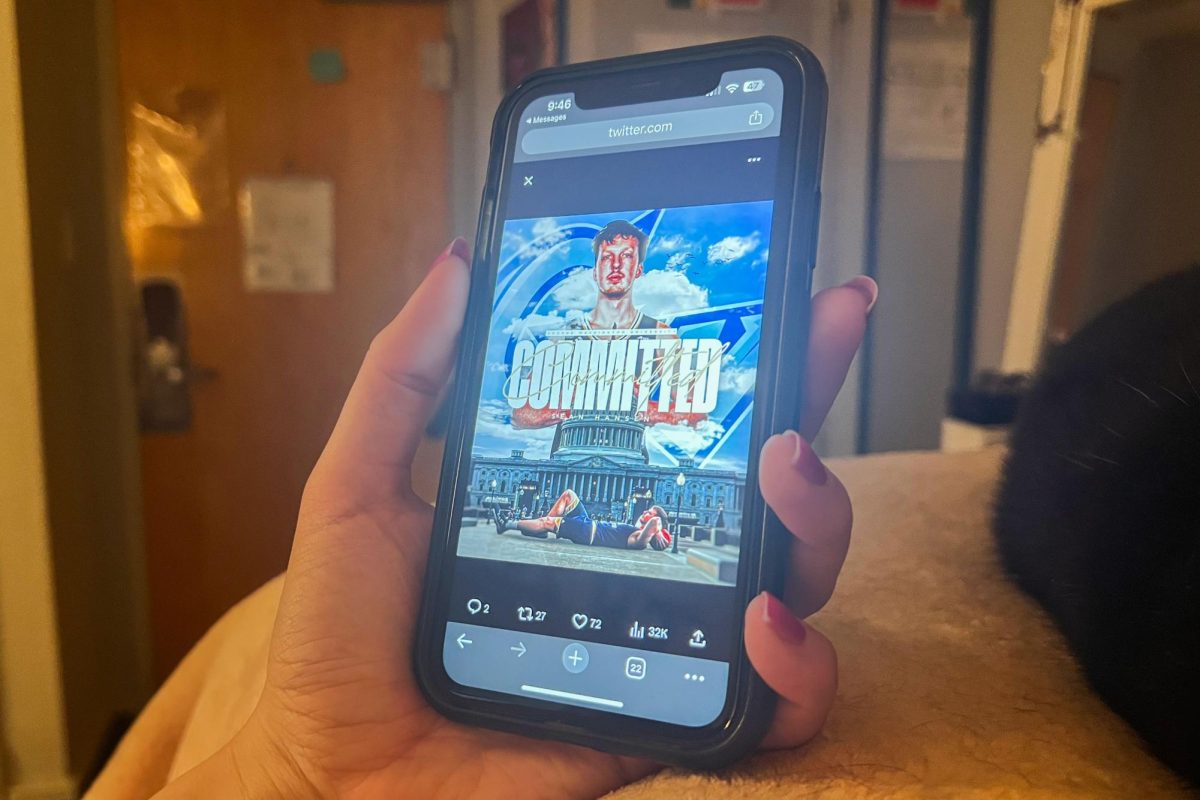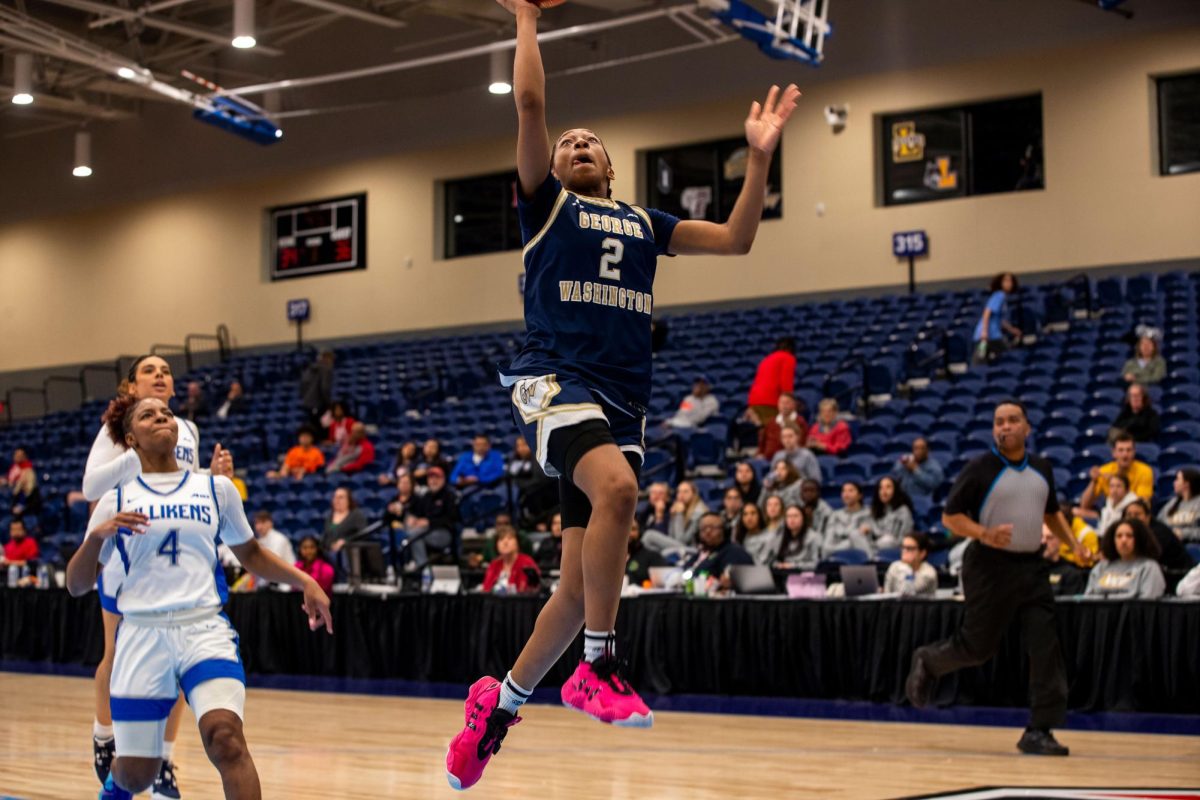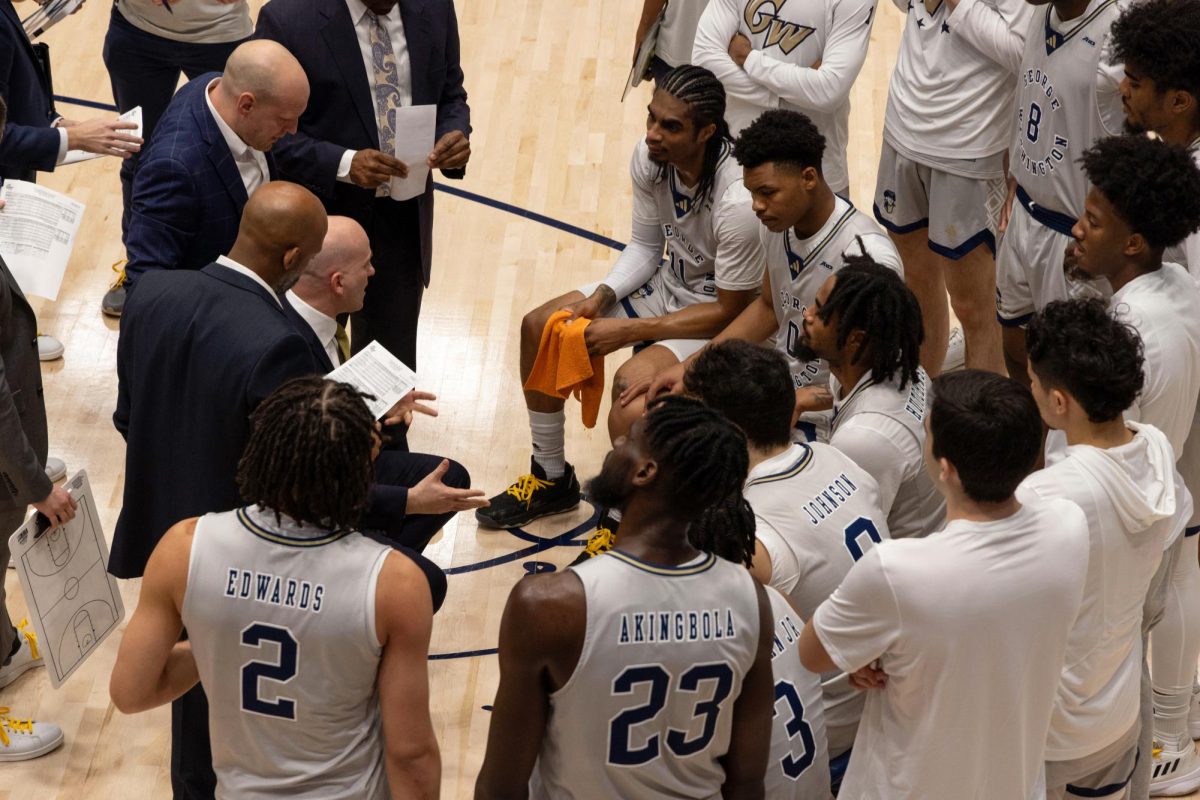“If you build it, he will come.”
-“The Voice” in Field of Dreams to Ray Kinsella (Kevin Costner)
After 32 years of talk and speculation, the message from “The Voice” in Field of Dreams describes the primary hurdle left for D.C. to be awarded a Major League Baseball team. Substitute Mayor Anthony Williams for Kevin Costner and put in the Expos’ Vladimir Guerrero for “Shoeless” Joe Jackson, and you have a clear picture of the central issue in bringing a team to the District next year – building a stadium. But, unlike in the movie, the issue in the District is not whether to build a stadium, but where to build a stadium and who would pay for it.
Winston Lord, executive director of the Washington Baseball Club, one of three potential ownership groups in the D.C. area, said the District’s fate with baseball will depend on how well it presents its case to Major League Baseball’s Relocation Committee.
“I think it comes down to the city getting ready for its presentation (to the Relocation Committee), which will probably happen in March, on those two questions – where we’ll build a ballpark and how we’ll pay for it,” Lord said. “I think it’s honestly that simple, but it’s that complicated at the same time.”
A team awarded to either Washington, D.C. or northern Virginia would play in RFK Stadium for the first few years while construction of a new stadium is completed, but the plan to build such a stadium must be set in place.
The first complication Lord made reference to is where to build a stadium. Last fall, a team of consulting firms analyzed 32 potential sites in the city and narrowed that number down to five. Three of them are in the downtown area – one near Union Station, one off Mount Vernon Square and one near the new Metro station under construction on New York Avenue. Of the two sites outside downtown being considered, one is next to RFK Stadium in Southeast and one is on the Anacostia River near South Capitol Street.
Ironically, most of these sites would make a Major League Baseball team closer and more accessible to GW students than their own school baseball team, which plays at Barcroft Park in Arlington, Va.
Lord said his ownership group, led by local financier Fred Malek and including retired Redskin Darrell Green, has no preference for any of the proposed sites.
“They all have great advantages,” Lord said. “I think the key is the ballpark should be in the heart of the region, which in this case is Washington, D.C., and you want to make sure the ballpark is in walking distance of at least one Metro.”
The five sites under consideration are estimated to come with a price tag of between $342 million and $542 million, $100 million more than 1999 estimates suggested. Mayor Williams, who declined to comment for this article, responded to the estimates by increasing his pledge for public funding from $200 million to $300 million at the end of last year, leading to the second complication in building a stadium: Where would the money come from?
Using taxpayers’ money to pay for a stadium has raised objections from some in a city that had to cut its budget by $323 million for the current fiscal year. Though the total cost of a stadium would not have to be paid up front, the city and eventual ownership group would have to pay off bonds over a 30-year period, Lord said.
Opponents of a publicly-funded stadium have claimed the city, which is already strapped for cash, would have to take funds from basic social services to help pay the bonds. With ticket and concession prices on the rise, some argue the city’s lower class taxpayers would be financing the entertainment of residents of Maryland and Virginia suburbs.
“You would hear a clamor from people,” D.C. Council member Sharon Ambrose (D-Ward 6) told the Washington Post. “Let’s put $200 million in school infrastructure. Let’s put $200 million in affordable housing.”
Ambrose and several other city council members did not return calls from The Hatchet this week, but Lord said the cost would be covered by revenues generated solely by the return of baseball to the District, such as taxes on player salaries and other stadium taxes.
“People need to understand that what we’re talking about is not spending money that is being used for other programs,” he said. “We’re not talking about taking money out of the school program or the traffic budget. The money would not exist unless you had a team here.”
City officials have also cited the positive potential economic impact of a stadium in the city, but economists have been skeptical about any short or long-term benefits. Andrew Zimbalist, a Smith College economist who has written several books on professional sports, said the economic impact of bringing a team to D.C. would be “close to zero.”
“There is a cultural impact, it’s fun to have a team, but all of the independent research that’s been done by economists shows that there is no reliable economic impact in bringing a baseball team to your city,” he said. Zimbalist said politicians promote the economic benefits “because they have been solicited by the interested parties from the private sector who will benefit.”
Regardless of where the city’s portion of the cost comes from, the eventual ownership group would have to pay any cost beyond Williams’ $300 million pledge. Black Entertainment Television founder Robert Johnson, another potential owner, told the Washington Post it would be hard for him to contribute more than $100 million. Lord did not specify a limit on the Washington Baseball Club’s contribution but said he is confident that his group can work together with the city.
If D.C. is not awarded a team, GW students may still have easy access to a team in northern Virginia, which is currently competing with the District to woo the Relocation Committee for a team.
Johnson and GW graduate William Collins III are the primary ownership candidates for a potential Virginia team. But without specific stadium sites selected and the amount of public financial backing uncertain, plans for a team in Virginia are in earlier stages than in the nation’s capital.
Executive Director of the Virginia Stadium Authority Gabe Paul, Jr. said his office is still evaluating a number of sites within Arlington, Fairfax and Loudon counties. A stadium in Virginia was previously estimated to cost $300 million dollars, but Paul said he expects that figure to increase.
As for public funding, two-thirds of the stadium cost would be split between an eventual owner and stadium tax revenue. Paul said the Stadium Authority is still working with Virginia Governor Mark Warner, a member of the GW Board of Trustees, to determine how the final portion would be paid for.
“This is a public-private partnership, and I think once it becomes known that we definitely will get a team if we vote for it, then the dynamics will change,” Paul said. “I think we’ll certainly be successful. After all, this is an economic issue and (our recent economic report) found the area very favorable to baseball.”
Whether the Expos are awarded to D.C. or northern Virginia depends on how well each local government makes its case to the Relocation Committee, Lord said. Each venue would likely be accessible by Metro, making a night at any area ballpark an easy trip for GW students, certainly easier than the current 75-minute commute to Baltimore’s Camden Yards.
“It’s really a negotiation between the city and Major League Baseball. (The ownership groups are) actually not involved in that,” Lord said. “At that point, whichever city wins will have already put a financial package in place that we as owners can decide whether to enter the bidding or not. So I’m confident the city can identify enough revenues generated by the return of baseball to pay for this ballpark.”







